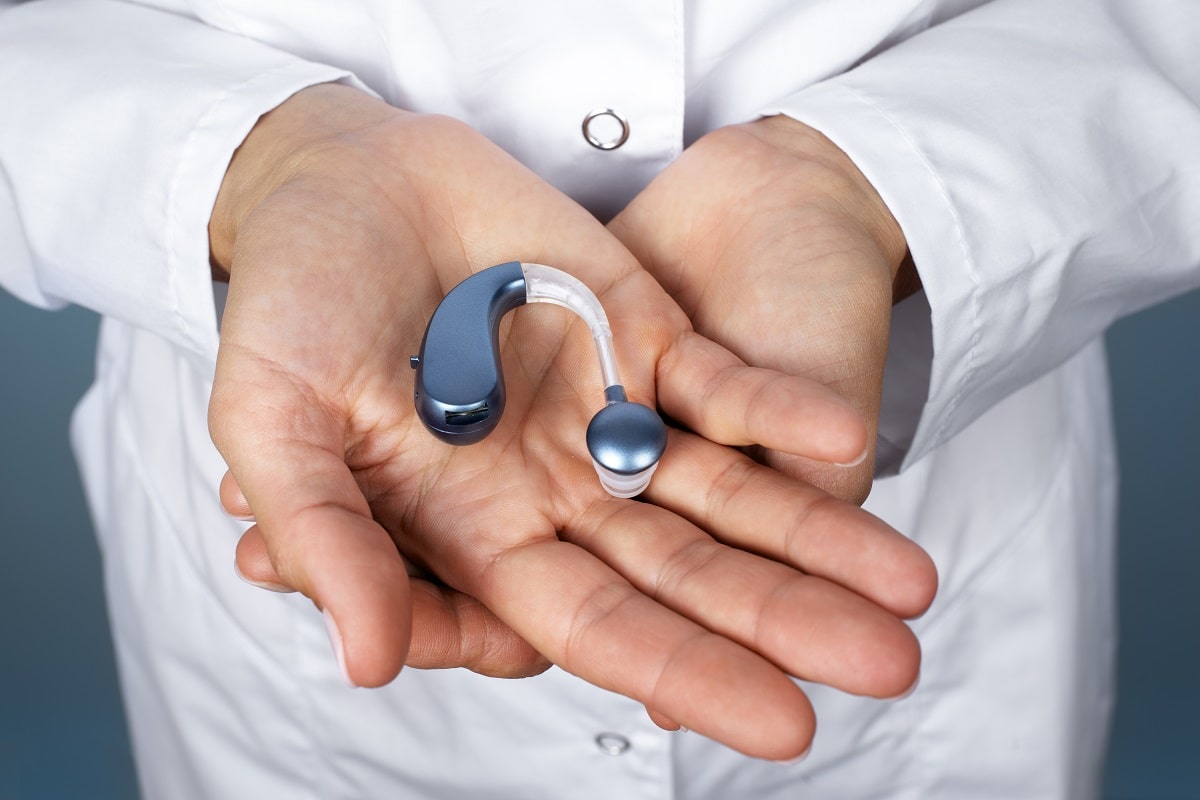Understanding When Hearing Aids Aren't Helpful Enough: Possible Reasons and Solutions
Hearing aids are amazing tools that have changed the lives of millions of people who have trouble hearing. They help people understand words better, make sounds sound better, and make them feel more connected to the world around them. But there are times when hearing aids don't help as much as people hope they will. In this piece, we'll look at some of the possible reasons why hearing aids might not help enough, as well as some possible ways to deal with these problems.
When hearing aids don't help, there could be a number of reasons why. Fitting or adjusting hearing aids wrong is one of the main reasons why they might not help enough. Each person's hearing loss is different, so their hearing aids need to be set up in a way that works best for them. If the hearing aids aren't fitted or set correctly, they might not help the person hear the sounds or frequencies they need to.
Hearing Loss: Hearing aids are made to help people with a wide range of hearing problems, from mild to serious. But in some cases, hearing aids may not be able to help because of the amount or type of hearing loss. For example, people with severe hearing loss or certain kinds of hearing loss, like auditory neuropathy, may need other solutions, like cochlear implants or hearing aids that are attached to the bone.
false Expectations: Sometimes, people have false ideas about what hearing aids can do for them. It's important to know that hearing aids can make a big difference in how well you hear, but they might not make your hearing as good as it was before. Even with hearing aids, things like background noise, the clarity of speech, and how each person hears can still affect their total hearing.
Coexisting Medical Conditions: Hearing aids may not work as well if you have certain medical conditions or causes. For example, people with a lot of cognitive decline, central auditory processing disorders, or serious tinnitus may not get enough help from hearing aids alone. In these situations, it may be necessary to use a multidisciplinary method that includes doctors, audiologists, and therapists.
Inadequate Device Technology: Technology for hearing aids keeps changing quickly, and older models may not have the same advanced features and powers as newer ones. If your hearing aids are old, the technology might not be able to meet your unique hearing needs as well as it could. If you upgrade to newer hearing aids with more features, you may find that you can hear better.
Possible Answers for Hearing Aids That Don't Help Enough
Professional Evaluation and Change: If you think your hearing aids aren't helping you as much as you'd like, have an experienced audiologist or hearing care professional take a look. They can look at how your hearing aids fit, how they are programmed, and how they are set up, and make any changes that are needed to make them work better.
Consider Other Options: If your hearing aids still aren't helping enough, you may need to look into other options. Talk to your hearing care professional to find out if other devices, like cochlear implants or hearing aids that are attached to your bones, would help you hear better.
Communication Strategies and Assistive Listening Devices: Besides hearing aids, you can improve your ability to hear in different situations by using communication strategies and assistive listening devices. You can get more out of hearing aids by doing things like reading lips, using visual clues, and getting closer to the speaker.
Regular Cleaning and Maintenance: Your hearing aids will work best if they are cleaned and cared for properly. Clean them often, repair any parts that are worn out, and make sure there is no buildup of dirt or earwax. Check the user instructions or talk to a hearing care professional about how to take care of your hearing aid.
Updated Technology: If you have older hearing aids, you might want to upgrade to ones that are newer and have better technology. Modern hearing aids have things like directional mics, noise-reduction algorithms, wireless connections, and the ability to work with smartphones. These improvements can make a big difference in how well you hear in different scenarios.
Education and counseling: Sometimes, people are unhappy with their hearing aids because they don't know enough about hearing loss or how they work. Participating in educational programs and counseling meetings can help you understand your hearing loss better, deal with your expectations, and learn how to communicate better.
Conclusion
Hearing aids have changed the way people with hearing loss experience the world, but there are still times when they don't help as much as they should. Understanding the possible reasons why there isn't enough help and looking into possible answers can help solve these problems. Getting a professional evaluation, thinking about other options, using communication strategies, and taking care of your hearing aids regularly are all important ways to improve your hearing. Make sure to talk to your hearing care professional to get advice that is special to your hearing needs and situation.
Hearing aids are amazing tools that have changed the lives of millions of people who have trouble hearing. They help people understand words better, make sounds sound better, and make them feel more connected to the world around them. But there are times when hearing aids don't help as much as people hope they will. In this piece, we'll look at some of the possible reasons why hearing aids might not help enough, as well as some possible ways to deal with these problems.
When hearing aids don't help, there could be a number of reasons why. Fitting or adjusting hearing aids wrong is one of the main reasons why they might not help enough. Each person's hearing loss is different, so their hearing aids need to be set up in a way that works best for them. If the hearing aids aren't fitted or set correctly, they might not help the person hear the sounds or frequencies they need to.
Hearing Loss: Hearing aids are made to help people with a wide range of hearing problems, from mild to serious. But in some cases, hearing aids may not be able to help because of the amount or type of hearing loss. For example, people with severe hearing loss or certain kinds of hearing loss, like auditory neuropathy, may need other solutions, like cochlear implants or hearing aids that are attached to the bone.
false Expectations: Sometimes, people have false ideas about what hearing aids can do for them. It's important to know that hearing aids can make a big difference in how well you hear, but they might not make your hearing as good as it was before. Even with hearing aids, things like background noise, the clarity of speech, and how each person hears can still affect their total hearing.
Coexisting Medical Conditions: Hearing aids may not work as well if you have certain medical conditions or causes. For example, people with a lot of cognitive decline, central auditory processing disorders, or serious tinnitus may not get enough help from hearing aids alone. In these situations, it may be necessary to use a multidisciplinary method that includes doctors, audiologists, and therapists.
Inadequate Device Technology: Technology for hearing aids keeps changing quickly, and older models may not have the same advanced features and powers as newer ones. If your hearing aids are old, the technology might not be able to meet your unique hearing needs as well as it could. If you upgrade to newer hearing aids with more features, you may find that you can hear better.
Possible Answers for Hearing Aids That Don't Help Enough
Professional Evaluation and Change: If you think your hearing aids aren't helping you as much as you'd like, have an experienced audiologist or hearing care professional take a look. They can look at how your hearing aids fit, how they are programmed, and how they are set up, and make any changes that are needed to make them work better.
Consider Other Options: If your hearing aids still aren't helping enough, you may need to look into other options. Talk to your hearing care professional to find out if other devices, like cochlear implants or hearing aids that are attached to your bones, would help you hear better.
Communication Strategies and Assistive Listening Devices: Besides hearing aids, you can improve your ability to hear in different situations by using communication strategies and assistive listening devices. You can get more out of hearing aids by doing things like reading lips, using visual clues, and getting closer to the speaker.
Regular Cleaning and Maintenance: Your hearing aids will work best if they are cleaned and cared for properly. Clean them often, repair any parts that are worn out, and make sure there is no buildup of dirt or earwax. Check the user instructions or talk to a hearing care professional about how to take care of your hearing aid.
Updated Technology: If you have older hearing aids, you might want to upgrade to ones that are newer and have better technology. Modern hearing aids have things like directional mics, noise-reduction algorithms, wireless connections, and the ability to work with smartphones. These improvements can make a big difference in how well you hear in different scenarios.
Education and counseling: Sometimes, people are unhappy with their hearing aids because they don't know enough about hearing loss or how they work. Participating in educational programs and counseling meetings can help you understand your hearing loss better, deal with your expectations, and learn how to communicate better.
Conclusion
Hearing aids have changed the way people with hearing loss experience the world, but there are still times when they don't help as much as they should. Understanding the possible reasons why there isn't enough help and looking into possible answers can help solve these problems. Getting a professional evaluation, thinking about other options, using communication strategies, and taking care of your hearing aids regularly are all important ways to improve your hearing. Make sure to talk to your hearing care professional to get advice that is special to your hearing needs and situation.


